Completed evaluations

Terminal evaluation of the project "Community-based Sustainable Dryland Forest Management"
22/01/2024
The project was satisfactorily implemented to achieve its objective to “reduce forest degradation in the northern part of the Gambia through the strengthening and expansion of community-forestry and implementation of sustainable forest management practices”. The project has been satisfactorily implemented with positive outcomes, such as improved forest management and entrepreneurship knowledge and skills development of target communities for improved livelihoods.

Terminal evaluation of the project ”Conservation and Sustainable Management of Türkiye’s Steppe Ecosystems”
22/01/2024
The evaluation found significant achievements related to building capacity and raising awareness on the importance of biodiversity conservation and sustainable management of steppe ecosystems. The project facilitated the creation of guidelines as well as strategic and action plans, which serve as valuable and practical tools for the Government of Türkiye to facilitate and replicate further interventions in sustainable management of the steppe ecosystem and biodiversity in the country.

Evaluation of the project “Support for strengthening mechanisms for concerted and peaceful management of transhumance for the restoration of intercommunity dialogue and the consolidation of peace in the prefectures of Ouham and Ouham-Pendé”
04/01/2024
The project's objective was to prevent and reduce agropastoral conflicts in order to contribute to security stabilization and socio-economic revitalization in the prefectures most affected by the phenomenon of violence linked to transhumance. The evaluation drew lessons and made recommendations to be implemented to encourage behavioral change among project stakeholders and beneficiaries, and also to promote better design and implementation of future projects.

Evaluation of FAO’s Subregional Office for the Caribbean 2018–2022
04/01/2024
The Subregional Office for the Caribbean provides strategic and relevant support to countries in the subregion and to partner organizations leveraging FAO’s global technical expertise and networks in numerous thematic areas. The subregional office should improve its efficiency with collaboration of relevant FAO units and implement a portfolio development strategy. FAO should further implement the reform of the regional structure and review the current regional mechanisms and processes.
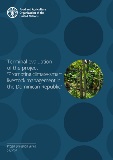
Terminal evaluation of the project "Promoting climate-smart livestock management in the Dominican Republic"
03/01/2024
The project, implemented from June 2018 to November 2022, had the objective of mitigating climate change and restoring degraded land by promoting climate-smart practices in the livestock sector. It led to the incorporation in the government’s agenda on climate and on agriculture and livestock of the importance of promoting climate-smart livestock farming practices and their applicability as effective tools for climate change mitigation and adaptation.
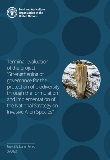
Terminal evaluation of the project "Strengthening of governance for the protection of biodiversity through the formulation and implementation of the National Strategy on Invasive Alien Species"
29/12/2023
The project’s aim was to develop a strengthened governance framework to enable the effective protection of biodiversity against the impacts of Invasive Alien Species, as well as to enhance current and future socio-economic benefits derived from the conservation and sustainable use of biodiversity. (Spanish only)
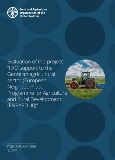
Evaluation of the project “FAO support to the Georgian agricultural sector (European Neighbourhood Programme for Agriculture and Rural Development [ENPARD III])”
29/12/2023
The evaluation covered three main areas of concern: i) capacity development of the Ministry of Environmental Protection and Agriculture (MEPA); ii) grant support to farmers/agricultural companies; and iii) technical support to famers. A systematic and objective assessment was made of the project design, the project’s implementation and its results in order to determine the project’s relevance and achievement of objectives, but also its efficiency, effectiveness, impact, and sustainability.
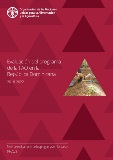
Evaluation of FAO’s country programme in the Dominican Republic 2018–2022
28/12/2023
FAO has had an impact on public policies on food security and has strengthened capacities to promote associations, as well as the adoption of innovative practices in areas such as climate-smart livestock farming. On the other hand, a potential has been identified to strengthen collaboration between partners that share objectives with the Organization. (In Spanish)

Evaluation of the project "Agriculture for Economic Growth and Food Security/Nutrition to mitigate migration flows"
28/12/2023
The project was pivotal in supporting the first-ever key policies which were a necessity in the agriculture sector and laid the foundation for the development of strong policies and strategic plans that enhanced institutional capacities. FAO reinforced national capacities by supporting institutions at all levels to prepare, implement, monitor and evaluate evidence-based policies and programmes.
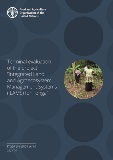
Terminal evaluation of the project "Integrated Land and Agroecosystem Management Systems (ILAMS) for Tonga"
18/12/2023
The final beneficiaries interviewed by the evaluation have been well engaged in the communal nurseries and medicinal plants preservation activities, which were considered useful for preservation of forest, biodiversity and enhancement of quality of soil. The enclosed piggeries model introduced by the project was overall accepted, but some of its elements (such as feeding and breeding), as well as its cultural appropriateness, deserve further attention.
